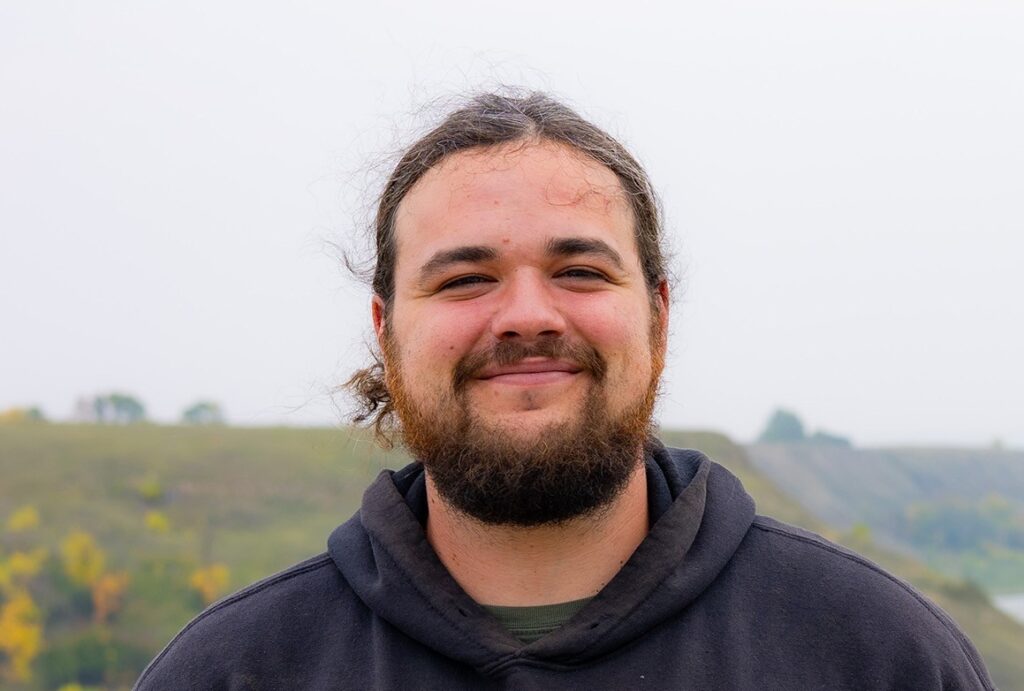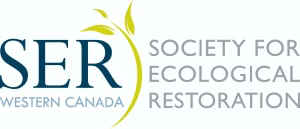Interview with a Board Member- Ian Hnatowich
Who are you and what are your land relations?
My name is Ian Hnatowich, and I currently work as the Manager of Natural Resources for the Wanuskewin Heritage Park Authority, located outside Saskatoon, SK. I was born as raised as a prairie boy, and so the grasslands certainly hold a special place for me. That said, I was lucky enough to have family in Manitoba and frequently visited our cottage on Lake Winnipeg during my youthful summers, resulting in an equal love for the boreal forests, little creeks, sloughs, rivers and lakes that I spent so much time in whilst picking berries, catching frogs and netting minnows!
My name is Ian Hnatowich, and I currently work as the Manager of Natural Resources for the Wanuskewin Heritage Park Authority, located outside Saskatoon, SK. I was born as raised as a prairie boy, and so the grasslands certainly hold a special place for me. That said, I was lucky enough to have family in Manitoba and frequently visited our cottage on Lake Winnipeg during my youthful summers, resulting in an equal love for the boreal forests, little creeks, sloughs, rivers and lakes that I spent so much time in whilst picking berries, catching frogs and netting minnows!
How did you get into ecological restoration?
I had a rocky start to my higher education, and in my early twenties decided that I just wasn’t fit for schoolwork. However, I was convinced to go back and try again after listening to a story from a graduate of the Renewable Resource Management program at the University of Saskatchewan, who had spent the previous few days catching frogs to move them to a safe haven while construction was occurring near their home pond. I thought it sounded much like my summers as a kid, and decided to follow in their footsteps. I am extremely grateful I made that decision, as within a few years, I found myself developing a love for soils, how they influence the flora and fauna around them, and how in turn the flora and fauna influences the soil. I enjoyed my education so greatly, that I quickly followed it up with a Master’s project working in the low-Arctic Tundra of Nunavut, and I was able to finally put my knowledge into practice in such a strange and inconspicuous environment.
I had a rocky start to my higher education, and in my early twenties decided that I just wasn’t fit for schoolwork. However, I was convinced to go back and try again after listening to a story from a graduate of the Renewable Resource Management program at the University of Saskatchewan, who had spent the previous few days catching frogs to move them to a safe haven while construction was occurring near their home pond. I thought it sounded much like my summers as a kid, and decided to follow in their footsteps. I am extremely grateful I made that decision, as within a few years, I found myself developing a love for soils, how they influence the flora and fauna around them, and how in turn the flora and fauna influences the soil. I enjoyed my education so greatly, that I quickly followed it up with a Master’s project working in the low-Arctic Tundra of Nunavut, and I was able to finally put my knowledge into practice in such a strange and inconspicuous environment.
What kind of work do you do?
My current position results in me wearing numerous hats, ranging from a general landscaper and maintenance crew to an environmental sciences presenter, research liaison for several higher education institutes in Saskatchewan, project manager, and even a prescribed fire practitioner. Working for Wanuskewin I have been encouraged to develop my understanding of Indigenous Worldviews, and try my best to incorporate those views into my work, whether through the gifting and offering of tobacco to the land, interesting techniques to manage wildlife (pond levelers and beavers abound!), or even beginning to learn Plains Cree (tânisi nitôtêmak).
My current position results in me wearing numerous hats, ranging from a general landscaper and maintenance crew to an environmental sciences presenter, research liaison for several higher education institutes in Saskatchewan, project manager, and even a prescribed fire practitioner. Working for Wanuskewin I have been encouraged to develop my understanding of Indigenous Worldviews, and try my best to incorporate those views into my work, whether through the gifting and offering of tobacco to the land, interesting techniques to manage wildlife (pond levelers and beavers abound!), or even beginning to learn Plains Cree (tânisi nitôtêmak).
What’s your favourite kind of restoration project?
My favorite restoration projects are the one where everyone participates, not just the researchers and technicians, and when you get to see learning in real time. During my M.Sc., I saw directly how incredible a learning experience can be when someone is placed within the environment they are studying, and I am always chasing the “Aha!” moment when someone discovers something new that they are legitimately interested in. That sparkle when someone realizes that this thing they never paid attention to is cool or fascinating or more complex then they could ever comprehend, is a truly special moment, and one that I am always proud and happy to have facilitated.What advice do you have for students and emerging professionals?
The first year of my undergraduate program was one of the most depressing times in my life, as it felt like everyday students were being presented with a new environmental crisis with an unspoken expectation that we were the one responsible for solving it. For quite a while, I thought it impossible, until I had those opportunities to see the environments I was studying, to interact with them, and most importantly to see how significant of an impact I could make on them. Without a doubt, the natural world has numerous issues that drastically need our assistance, our determination and our actions. However, the sky hasn’t fallen yet, the forests still breathe, the grassland still blow in the breeze and the creeks still flow. There is always time, there is always hope, and when more and more people get to experience their personal “Aha!” moments, there will always be someone standing beside you ready to take on the next challenge.
My favorite restoration projects are the one where everyone participates, not just the researchers and technicians, and when you get to see learning in real time. During my M.Sc., I saw directly how incredible a learning experience can be when someone is placed within the environment they are studying, and I am always chasing the “Aha!” moment when someone discovers something new that they are legitimately interested in. That sparkle when someone realizes that this thing they never paid attention to is cool or fascinating or more complex then they could ever comprehend, is a truly special moment, and one that I am always proud and happy to have facilitated.What advice do you have for students and emerging professionals?
The first year of my undergraduate program was one of the most depressing times in my life, as it felt like everyday students were being presented with a new environmental crisis with an unspoken expectation that we were the one responsible for solving it. For quite a while, I thought it impossible, until I had those opportunities to see the environments I was studying, to interact with them, and most importantly to see how significant of an impact I could make on them. Without a doubt, the natural world has numerous issues that drastically need our assistance, our determination and our actions. However, the sky hasn’t fallen yet, the forests still breathe, the grassland still blow in the breeze and the creeks still flow. There is always time, there is always hope, and when more and more people get to experience their personal “Aha!” moments, there will always be someone standing beside you ready to take on the next challenge.

Ian Hnatowich, SER Western Canada Board Director at Large
